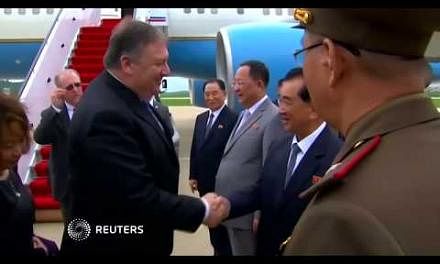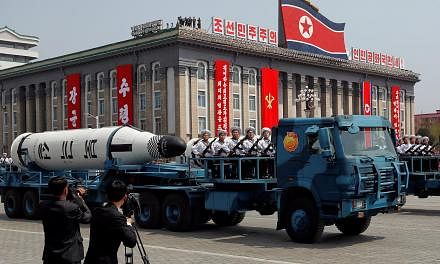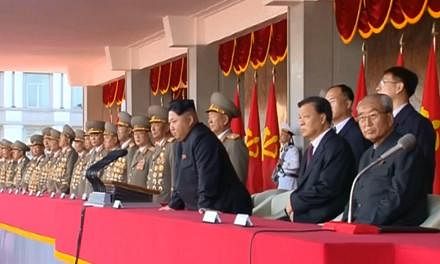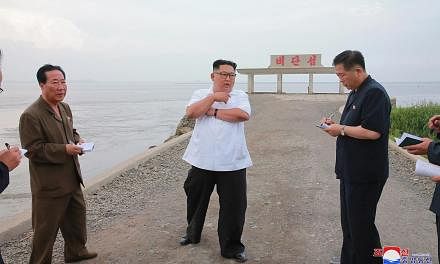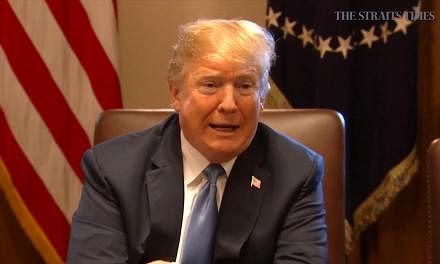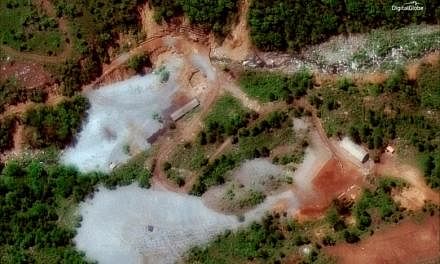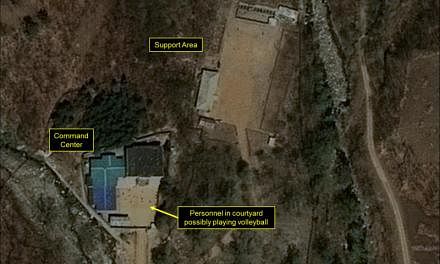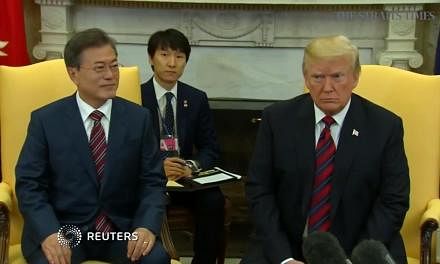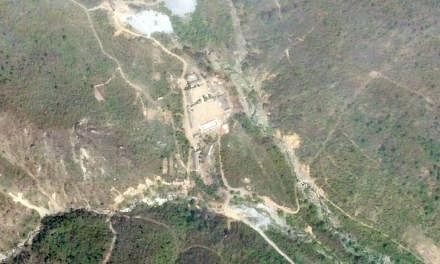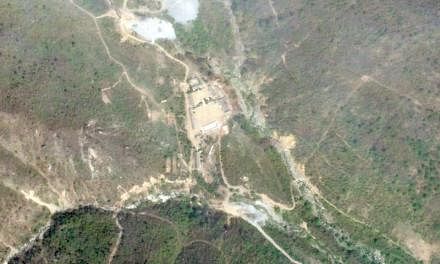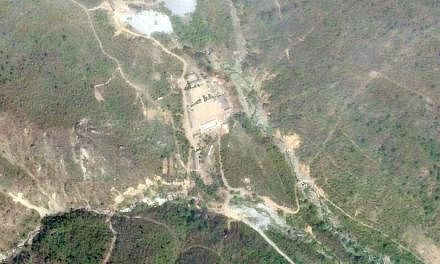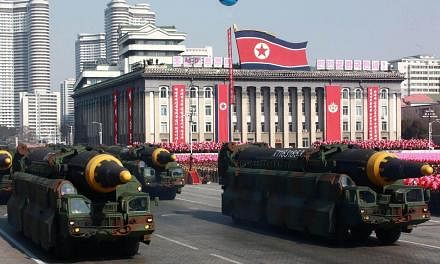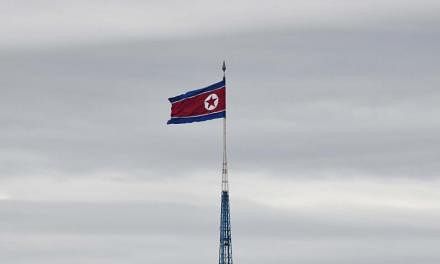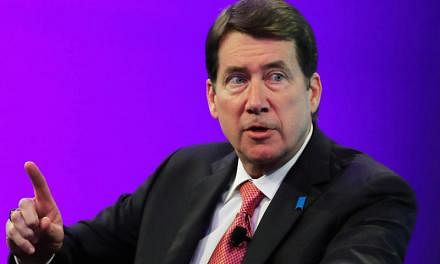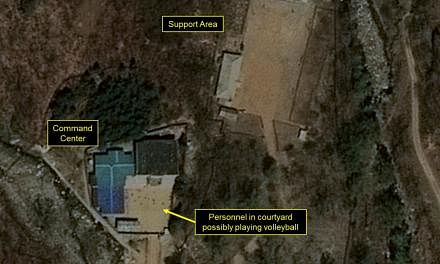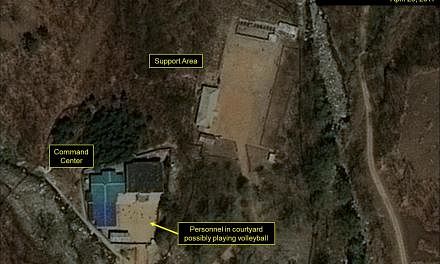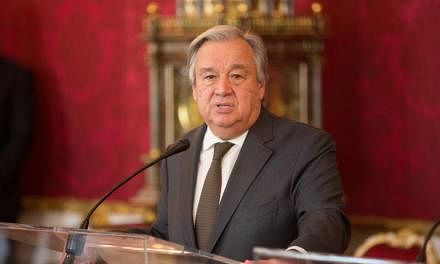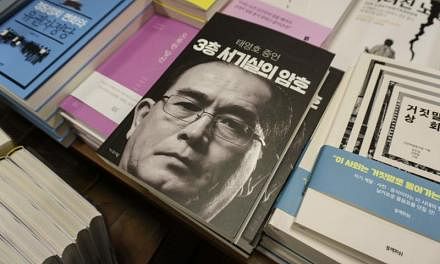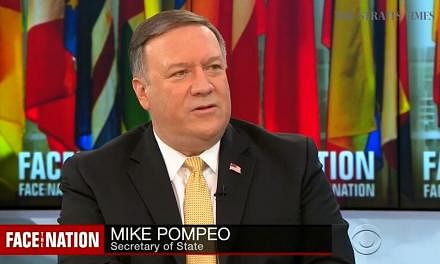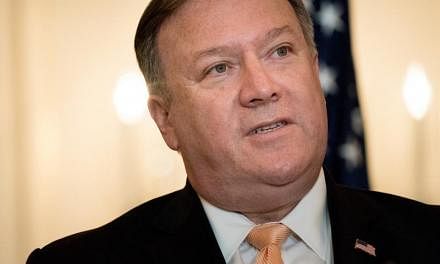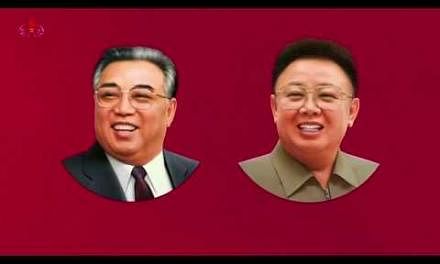LONDON (REUTERS) - North Korea's biggest nuclear test to date was condemned around the world on Sunday (Sept 3), with the UN nuclear watchdog expressing grave concern and Russia saying it could lead to serious consequences.
The explosion of what North Korea said was an advanced hydrogen bomb caused residents across the border in China to flee their homes, fearing an earthquake. Japan and South Korea said it was around 10 times more powerful than the tremor picked up after the last test a year ago.
French President Emmanuel Macron urged the United Nations Security Council to react quickly and decisively.
"The international community must treat this new provocation with the utmost firmness, in order to bring North Korea to come back unconditionally to the path of dialogue and to proceed to the complete, verifiable and irreversible dismantling of its nuclear and ballistic programme," he said in a statement.
China, the only North Korean ally that is a permanent member of the Security Council, urged its neighbour to stop "wrong"actions that worsen the situation. It said it would fully enforce UN resolutions on the country.
With US President Donald Trump yet to respond, the Russian foreign ministry called for calm.
"In the emerging conditions it is absolutely essential to keep cool, refrain from any actions that could lead to a further escalation of tensions," it said on its website, adding that North Korea risked "serious consequences".
Moscow urged all sides involved to hold talks, which it said was the only way to resolve the Korean peninsula's problems. Later on Sunday, Russian President Vladimir Putin is set to meet his Chinese counterpart Xi Jinping in China.
Just hours before the nuclear test, Trump talked by phone with Japanese Prime Minister Shinzo Abe about the "escalating"nuclear crisis. After Pyongyang fired a ballistic missile over Japan last week, he tweeted that "talking is not the answer".
The International Atomic Energy Agency, which has no access to North Korea, called the nuclear test, Pyongyang's sixth since 2006, "an extremely regrettable act" that was "in complete disregard of the repeated demands of the international community."
The organisation in charge of the global nuclear test ban treaty - which cannot come into legal force until ratified by the United States, China, India, Iran, Israel, Pakistan and Egypt as well as North Korea - said things had to change.
"I sincerely hope that this will serve as the final wake-up call to the international community to outlaw all nuclear testing by bringing the CTBT into force," said Lassina Zerbo, head of the Comprehensive Test Ban Treaty Organisation.

